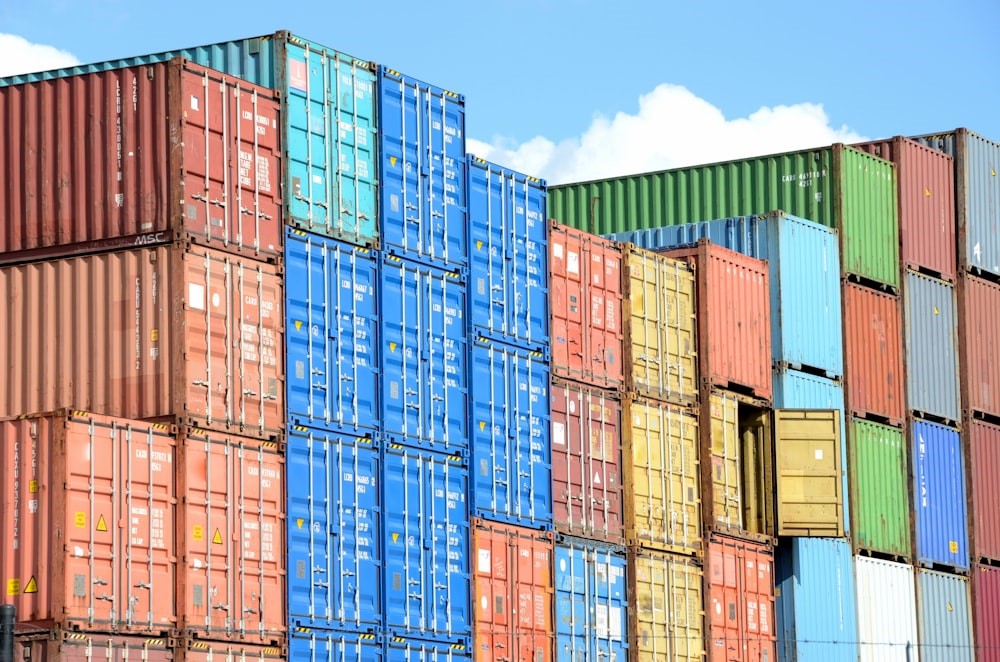If you have ever marveled at the sight of massive cargo ships unloading their freight, you’ve likely seen shipping containers in action. These steel giants play a crucial role in global trade, but did you know that they also have a myriad of other uses? From trendy urban dwellings to sturdy storage units, shipping containers have become a versatile solution for various needs.
In this guide we’ll delve into everything you need to know about purchasing shipping containers for sale and unlocking their full potential.
Introduction to shipping containers
Shipping containers, often referred to as conex boxes or cargo containers, are large metal boxes used for transporting goods across long distances. They come in standardized sizes and are designed to withstand the rigors of sea voyages, making them incredibly durable and resilient structures.
Uses and benefits
The versatility of shipping containers extends far beyond their original purpose. While they are indispensable in the shipping industry, these containers have found applications in construction, architecture, retail and even residential housing. Their robust construction makes them ideal for repurposing into various structures, offering cost-effective and eco-friendly alternatives.
Types of shipping containers
When considering purchasing a shipping container, it’s essential to understand the different types available. Standard containers are the most common, but there are also high cube containers, refrigerated containers, open-top containers, and flat rack containers, each serving specific purposes and catering to different needs.
Factors to consider when buying shipping containers
Several factors should influence your decision when buying a shipping container. These include the size required for your project, the condition and quality of the container, your budget constraints and the available delivery options to transport the container to your desired location.
Where to find shipping containers for sale
There are numerous avenues for purchasing shipping containers, ranging from online marketplaces like eBay and Craigslist to specialized dealers and auctions. Each option has its advantages and considerations, so it’s essential to research thoroughly and choose a reputable source.
Inspecting shipping containers
Before finalizing your purchase, it’s crucial to inspect the shipping container for structural integrity, signs of wear and tear, and any potential leaks. A thorough inspection will ensure that you receive a container that meets your expectations and requirements.
Customization options
One of the most exciting aspects of shipping containers is their potential for customization. Whether you’re looking to create a cozy living space, a functional workspace, or a unique retail environment, there are countless modification options available to tailor the container to your needs.
Legal and regulatory considerations
Before embarking on any shipping container project, it’s essential to familiarize yourself with the legal and regulatory requirements in your area. This includes zoning laws and permits, transportation regulations and insurance considerations to ensure compliance and mitigate any potential risks.
Maintenance and care tips
Proper maintenance is key to prolonging the lifespan of your shipping container and ensuring its continued functionality. Regular cleaning, rust prevention measures and timely repairs are essential to keep your container in optimal condition.
Shipping container conversion ideas
The possibilities for repurposing shipping containers are virtually endless. From trendy tiny homes and sleek office spaces to innovative retail outlets and eye-catching art installations, shipping container conversions offer a unique blend of durability, sustainability and style.
Case studies
To illustrate the versatility of shipping container projects, we’ll explore several real-life case studies showcasing successful conversions and installations across different industries and applications.
What is the average lifespan of a shipping container
The average lifespan of a shipping container varies depending on several factors such as its usage, maintenance and environmental conditions. Generally, a well-maintained shipping container can last anywhere from 10 to 20 years or even longer. However, this lifespan can be extended with proper care and regular maintenance practices such as rust prevention, structural repairs and timely inspections.
Additionally, factors like exposure to harsh weather conditions, frequent transportation and the quality of the container itself can influence its longevity. Overall, while there isn’t a fixed lifespan for all shipping containers, proper care and maintenance can significantly prolong their usability and effectiveness.
Conclusion
Shipping containers offer a world of possibilities for anyone looking to embark on a creative project or find practical solutions to their space needs. By understanding the buying process, exploring customization options and staying informed about legal and regulatory considerations, you can unleash the full potential of shipping containers and embark on your own unique journey.
The article Shipping containers for sale, a comprehensive guide first appeared in TravelDailyNews International.


+ There are no comments
Add yours